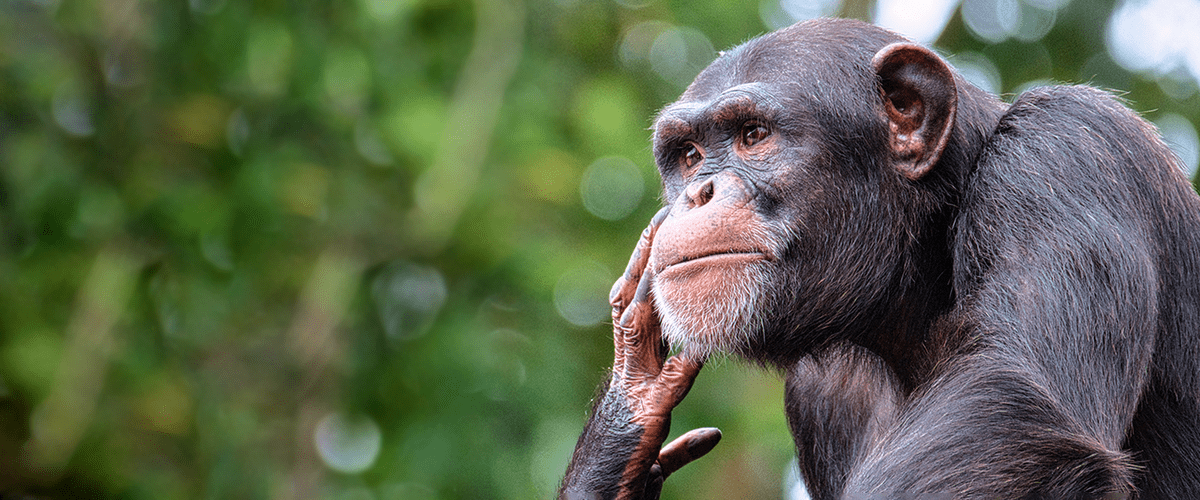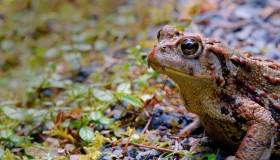
April 5, 2022 — Morris Animal Foundation has funded wildlife health studies for 55 years to improve the health and well-being of animals living in the oceans, on land and in the air. Our funded researchers tackle emerging and persistent diseases, environmental threats, reproductive challenges in endangered species as well as improve care for wildlife in rehabilitation and rescue facilities.
Below you will find a two-year snapshot of our funded wildlife health studies and learn how we’re working to improve the care and well-being of wild species around the world.
AFRICAN ELEPHANT HEALTH
Assess the prevalence of hybrid elephants (naturally interbred African forest and savanna elephants) and how their health compares to their parental species.
AQUATIC INVERTEBRATES & COAL ASH
Assess the impacts of coal ash repositories on freshwater wetlands and health risks to aquatic wildlife.
CHIMPANZEE RESPIRATORY DISEASE
Investigate respiratory pathogens transmitted from people to chimpanzees to minimize ongoing outbreaks.
DOLPHIN DISEASE MONITORING
Develop modeling tools to better understand disease transmission and forecast future disease outbreaks in Atlantic bottlenose dolphins in the Chesapeake Bay.
EAGLES & POLLUTANT EXPOSURE
Study how pollutant exposure affects the health and well-being of white-tailed eagles.
FOXES & PARASITES
Investigate the role of a newly described intestinal parasite on the decline and increased extinction risk of the San Miguel Island fox.
FROGS & NOISE
Study how the acoustic environment of zoos alters frog vocalizations, impacting the welfare and wild release of these conservation animals.
FUR SEAL PUP DIET
Determine how maternal diet influences milk composition and the survival of nursing fur seal pups.
GORILLA CHRONIC WASTING SYNDROME
Study the connection between parasitic worm infections, the gut microbial community and a chronic wasting syndrome in mountain gorillas.
KOALAS & CHLAMYDIA
Evaluate an adjunct treatment for koalas receiving antimicrobial therapy for chlamydia.
MANATEE HEALTH THREATS
Determine causes of mortality in a subspecies of West Indian manatees to improve health and conservation of these endangered animals.
MARINE MAMMAL PAIN MANAGEMENT
Establish appropriate dosing of meloxicam, a commonly used pain medication, for Pacific harbor seals and California sea lions.
MUSSEL HEALTH
Investigate the validity of using hemolymph analysis (similar to blood analysis in mammals) to assist in die-off investigations of freshwater mussels.
PANGOLIN REHABILITATION & RELEASE
Develop a prognostic scoring system to maximize post-release success for confiscated pangolins from illegal wildlife traffickers.
PENGUIN DISEASE OUTBREAKS
Discover causative agents of two severe diseases and high mortality in yellow-eyed penguin chicks.
POLAR BEAR REPRODUCTIVE HEALTH
Identify hormonal factors that could predict and monitor reproductive health of polar bears.
RIVER OTTER HEALTH
Examine the impact of urbanization on North American river otter health across tributaries of the Chesapeake Bay.
SEA LION SEIZURES
Improve seizure monitoring in California sea lions affected by domoic acid, a harmful marine toxin.
SEA OTTER PARASITIC DISEASE
Study whether infection with different strains of the parasite Sarcocystis neurona leads to different disease severity in southern sea otters.
SEA TURTLE GUT HEALTH
Evaluate how antibiotic therapy influences the gut microbiome of convalescing sea turtles to improve care of these endangered animals.
SIHEK REPRODUCTIVE HEALTH
Investigate hatching failure, poor female health and mortality as well as genetic threats in the extinct-in-the-wild sihek, also known as the Guam kingfisher.
TERRAPIN CRAB TRAP DROWNING
Develop new release hatches for crab traps to reduce bycatch drowning of diamondback terrapins.
VULTURES & TOXINS
Investigate whether Egyptian vultures could be exposed to harmful toxins derived from veterinary products through consumption of livestock feces.
WETLAND BIRDS & AVIAN CHOLERA
Develop a big data model to learn more about drivers of avian cholera outbreaks.
WHITE IBIS HEALTH & MANAGEMENT
Study how urbanization affects the ecology and health of white ibis and its potential imact on other coastal wetland bird species.
AUSTRALIAN WILDLIFE STUDIES
In response to the devastating 2019-20 Australian fires, the Foundation is working closely with Australian researchers to find solutions and improve care for Australian wildlife impacted by bushfires. Findings from this collaboration may help inform care and rescue of species around the world equally impacted by the increased threats from climate change and resulting wildfires.
BEST PRACTICE REHABILITATION GUIDELINES
Determine factors correlated with successful rehabilitation of marsupials impacted by bushfires and develop best practice guidelines for future catastrophic fire events.
KOALA SURVIVAL
Review clinical data on koalas affected by recent bushfires to identify predisposing risk factors and prognostic indicators to improve overall care in future fire seasons.
PROGNOSTIC SURVIVAL FACTORS
Provide science-based evidence to improve rehabilitation and care for injured Australian wildlife.
OPTIMAL ANTIBIOTIC USE
Investigate how antibiotics were used to treat bushfire-affected wildlife to help inform antibiotic-resistance risks and improve treatment outcomes
OPTIMIZE OUTCOMES FOR BUSHFIRE-IMPACTED WILDLIFE
Develop evidence-based guidelines to facilitate triage and treatment of bushfire-affected marsupials to better prepare for future Australian bushfire seasons.




